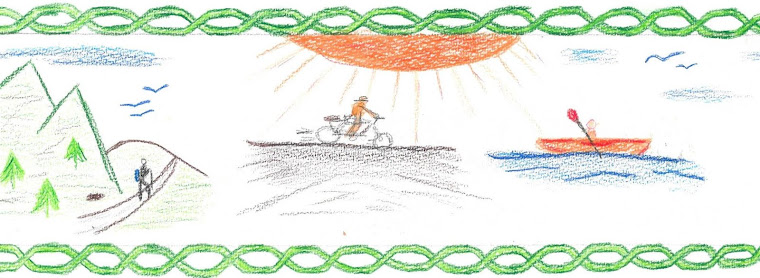Lectionary Ruminations 2.5 is a further revision and refinement
of my Lectionary Ruminations and Lectionary
Ruminations 2.0. Focusing on The Revised Common Lectionary Readings
for the upcoming Sunday from New Revised Standard Version (NRSV) of the Bible, Lectionary Ruminations 2.5 draws on over thirty years of pastoral
experience. Believing that the questions we ask are often more important
than any answers we find, without over reliance on commentaries, I intend with
sometimes pointed and sometimes snarky comments and Socratic like questions, to
encourage reflection and rumination for readers preparing to lead a Bible
study, draft liturgy, preach, or hear the Word. Reader comments are invited and
encouraged.
12:1 God now speaks to both Moses and Aaron. What about
Mariam?
12:2 What month? I think Israel recognized at least two
calendars, one civil/religious and the other agricultural. How many ways do
contemporary Christians tell and mark time?
12:3 Why a lamb?
12:4 How many people does it take to eat a lamb?
12:5 Why without blemish? From the sheep or the goats?
12:6 Why keep it four days? Or was it kept only three days if it was
slaughtered at twilight?
12:7 I wonder what was done with the blood that was not put on the
doorposts and lintel. What about the doorposts and lintel of a family partaking
in another house?
12:8 Why unleavened bread and bitter herbs?
12:9 I can understand the prohibition about not eating any raw lamb
but why not boiled? Why roasted whole? Is it sanitary to roast it whole?
12:10 Do not let anything remain until the morning! But if
anything does remain until the morning, burn it. Why?
12:11 This sounds like the original fast food. But it takes a while
to roast a lamb and then burn the remains.
12:12 What is the irony here? Why is judgment executed on the
gods of Egypt rather than upon Pharaoh? Why are creatures other than humans
affected?
12:13 Is the blood a sign for the whole congregation of Israel or a
sign for God? Are creatures other than humans also saved by the LORD passing
over?
12:14 Do “day of remembrance,” “a festival,” and, “a perpetual
ordinance” all mean the same thing?
PSALM 149
149:1 What is a “new song” and what is the difference between a “new
song” and any other sort of song? How shall PC(USA) Presbyterians, introducing
the new hymnal Glory To God, read this passage? When is a song no
longer new?
149:2 Is there any difference between “Israel” and “the children of
Zion” or is this just an expression of Hebrew poetry? How easily do Christians
refer to the same thing(s) with different words? Does “King” refer to God or the
earthly king?
149:3 When was the last time people worshiping in your congregation
praised God’s name with dancing? When was the last time you heard a
tambourine (or a lyre) in worship?
149:4 I like the image of God taking pleasure in me.
149:5 Did people really sing for joy on their couches? What about
couch potato worshipers watching Sunday morning preachers on TV?
149:6 I like the image of singing but not swashbuckling.
149:7 I do not like the way this Psalm has progressed from singing a
new song of praise to using swords to execute vengeance and punishment.
149:8-9 I do not like the militaristic imagery as this is beginning to
sound like the call a holy war. How shall we deal with this in light of the
history of the Crusades and current so-called radical Islamic terrorism?
ROMANS 13:8-14
13:8 Here is a solution to our personal and national debt!
13:9 Of all the commandments, even all the ten commandments, why are
these four mentioned?
13:10 Can we forget the commandments as long as we love our neighbor?
13:8-10 See Matthew 19:18-19
13:11 What time is it? “For salvation is nearer to us now than when
we became believers” is logically a true statement unless there is no
salvation. The future is always growing closer to the present no matter how far
away the future may be. What does it mean to wake from sleep? Seep is often a metaphor
referring to death. Is that how it is being used here?
13:12 What are the works of darkness? What is the armor of
light? Can the Dead Sea Scrolls help us as we interpret this passage?
13:12-13 Is the assumption that some types of behavior are more
typically engaged in at night and refrained from during the day?
13:13 May we logically assume that “reveling and drunkenness,
debauchery and licentiousness, quarreling and jealousy” are among (or all of)
the works of darkness?
13:14 Is putting “on the Lord Jesus Christ” the antithesis of “gratifying
desires of the flesh?” Is Paul alluding to baptism?
MATTHEW 18:15-20
18:15 How does someone “sin” against you? How might Family Systems
Theory inform our interpretation and application of this verse?
18:16 What “word” are these “witnesses” confirming? Are the witnesses
to be neutral?
18:17 What does it mean for church member to be “as a Gentile and a tax
collector”? This is beginning to sound like a church disciplinary process.
18:18 Have we heard these words before, in another context? What is
the meaning of binding and loosing?
18:19 Just two? Anything? Is this an example of hyperbole? What if
two different groups of Christians agree in the group but each group takes the
opposite position of the other group? What if three Christians agree on earth
about something that two other Christians have agreed to oppose?
18:20 What does it mean to “gather in my name?” Two or three is a lot
less than a minyan.
ADDENDUM
I am
a Minister Member of Upper Ohio Valley Presbytery of the Presbyterian Church
(U.S.A.) and am serving as the Pastor of the Bethlehem United Presbyterian Church, Wheeling, WV. Here is the address of Bethlehem United's Facebook page. https://www.facebook.com/Bethlehem-United-Presbyterian-Church-102482088303980


